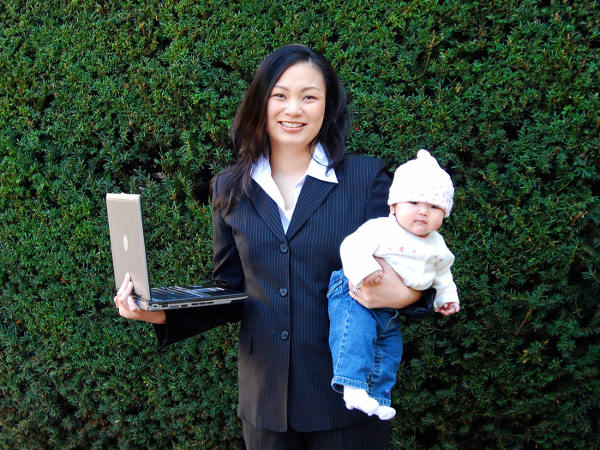
HK firms to attract mothers by offering flexible working
New research by Regus has revealed that 32% of businesses in Hong Kong are planning to hire more returning mothers in 2015 than in 2014. The figures are significantly higher than the global average of 26%.
According to the survey, returning mothers play an important role in the overall economy by contributing to boosting GDP through increased female participation in the labour force. This is particularly true for cities like Hong Kong where the workforce will start to shrink the next three years, from an estimated 3.71 million workers in 2018 to a projected 3.52 million in 2031, according to the Hong Kong Government’s latest statistics.
Against this backdrop, bringing mothers back into the workforce has become an imperative for Hong Kong businesses. According to a 2012 government census survey, the city has about 500,000 stay-at-home mothers, of whom 8% - about 40,000 - said that they would consider returning to work if the right support was given.
The contrasting demands of motherhood and work are one of the main reasons women drop out of the workforce. To combat this phenomenon, respondents in Hong Kong and around the world emphasised the important role that flexible working plays in attracting female talent—in fact, 83% of respondents believe that flexible working is key to attracting and retaining women workers.
The research also highlights the fact that returning mothers are particularly valued by businesses globally because of their experience and skillset, as well as reliability and excellent time management. Additionally, returning mothers are seen as less likely to change jobs, saving firms the cost of recruitment and re-training. Previous Regus research further confirms that 57% of businesses think that retaining working mothers helps improve productivity as training costs are lower than hiring new employees.
Michael Ormiston, Country Manager at Regus Hong Kong commented, "There is a vast amount of untapped potential among skilled and experienced mothers who are unable to work due to family commitments. Flexible working enables companies to tap into this workforce and offer returning mothers a path back into the workforce."
The benefits to businesses are clear—less staff turnover, lower hiring and training costs and access to talented staff. But businesses warn that in order to retain these valuable employees it is critical that firms offer some level of flexible working, such as the possibility to work closer to home.



